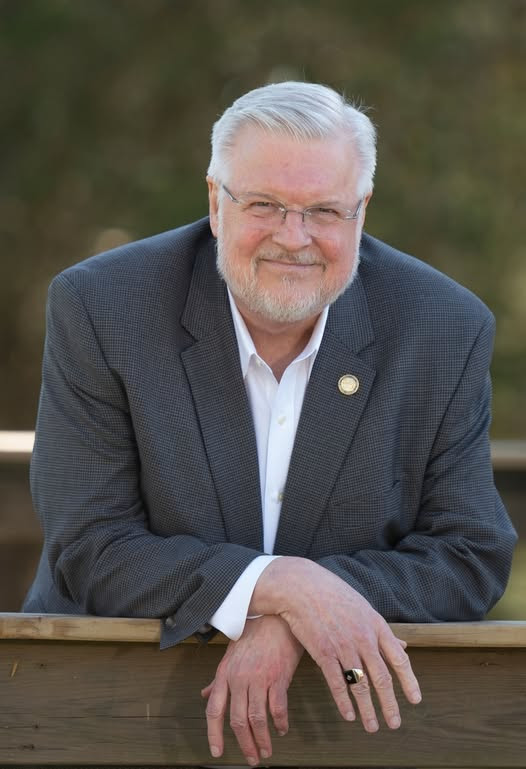Return America
August 15, 2025
Sometimes God arranges events so that His hand is the only explanation for victory. That happened with House Bill 193 – Firearm Law Revisions – Return America’s top legislative priority this year. Return America believed this bill was urgently needed. It allows qualified employees or volunteers at private schools to carry a firearm or stun gun on school property if they have proper training, a concealed carry permit, and written permission from the school. It also permits concealed carry at religious services held in school buildings, even during school hours, if approved by the school.
Its passage was anything but certain. In both the House and the Senate, the override of the Governor’s veto succeeded by just one vote, after the Senate’s tally was first declared a failure, then later reversed. From start to finish, it was a nail-biter – precisely the result that makes it clear only God could have given the victory.
HB 193 was the first of eight veto overrides taken up that day in the House, and the gallery was packed with onlookers. Seventy-two votes were needed – three-fifths of the chamber – to override the veto. That meant every one of the seventy-one Republicans had to be present and voting, plus at least one Democrat crossing over.
When the bill came to the floor, Speaker Destin Hall recognized Rep. Jeffrey McNeely, the bill’s chief sponsor, to present the measure and make the case for overriding the Governor’s veto. What most members didn’t know was that one Republican was still missing – delayed on his way to Raleigh after being pulled over by a patrolman, possibly for speeding in a last-minute dash to the chamber. That morning, McNeely’s remarks ran far longer than usual, and now we know why: he was deliberately buying time for that final, decisive vote to walk through the door.
Thankfully, the delayed member arrived just in time, giving the Republican caucus its full seventy-one votes and setting the stage for the razor-edged victory.
But that was only part of the drama. The House also took a procedural vote on the “Previous Question,” a motion to cut off debate and force an immediate vote on the matter at hand, in this case, the Governor’s veto of HB 193. Unlike the override, which required three-fifths of the chamber, this motion only needed a simple majority. Yet such votes often serve as a revealing test run for the real thing. When the board lit up, the result was 71–48, with one not voting. Yikes!
This was a flashing warning light. If the same members voted the same way on the override, they would still be one vote short. The tension was palpable. Would a Democrat cross the aisle? Many of us feared the numbers might not be there.
Then, between the procedural vote and the override itself, the breakthrough came. At least one Democrat, Rep. Shelly Willingham, crossed over to vote “yes” on the override. When the Speaker finally called the vote, the board showed 72 green lights to 48 red, the exact margin needed to send HB 193 to the Senate.
In legislative strategy terms, it was the closing of a whip-count gap. But to those who were there, it was something more, the kind of hair’s-breadth victory where the only real explanation is the providence of God.
The Senate was next, and if the House was tense, the Senate was a powder keg. They also needed three-fifths of those present to override the Governor’s veto. The math was just as tight. One vote could swing the entire outcome.
The roll call began. Senators’ voices rang out — “Aye,” “No.” Then came the first tally. Something felt off. Too few “Ayes,” maybe? God forbid!
Lt. Gov. Rachel Hunt, presiding over the Senate, announced that the override had failed. The air seemed to leave the room. Faces fell on the floor and in the gallery, and there were sighs and groans. Some whipped out their phone calculators, frantically crunching the numbers to see what three-fifths of those present should be.
Then, something even more puzzling happened. Sen. Bill Rabon, the powerful Republican Senate Rules Chairman, changed his vote. But Sen. Rabon had not suddenly changed his mind about the bill. In the Senate, switching your vote at the right moment can be a strategic move, either to reopen the vote later or shift the math somehow. It’s a legislative means of trying to keep the measure alive. The chamber froze. Murmurs were heard from seat to seat.
Leadership huddled with Hunt, the clerk, and the parliamentarian. It was a do-or-die huddle where history hangs in the balance. Eyes darted to the vote board. You could almost hear hearts pounding. Was this really happening?
Then Hunt returned to the microphone and flipped the story, announcing the override had passed — 29 to 19. Shoulders eased. Faces softened. Much of the room exhaled. Some wanted to clap and cheer, but suppressed their emotions because the gallery didn’t allow it. Consequently, supporters surged toward the doors, eager to congratulate one another and celebrate the victory outside the chamber. The bill had gone from seeming defeat… to triumph in just minutes.
Someone must have miscounted because the 29 votes from the original tally were already enough to pass the bill. Hmmm.
In the end, every lawmaker – every advocate – every supporter – every person who prayed – played a necessary role. Each was a means to an end; without them, the outcome would have surely been different. The thread-thin margins, the delays, the last-minute changes, the dramatic procedural twists and reversals, these obstacles could have stopped House Bill 193 at any point, but they didn’t, because the Lord didn’t allow it. Sometimes the Lord moves in ways that make it quite apparent that His involvement is the only reasonable conclusion for a good outcome.
We can say with the psalmist, “This is the Lord’s doing; it is marvelous in our eyes” (Psalm 118:23).
After 12 long years of advocacy, the bill will finally become law on December 1.


